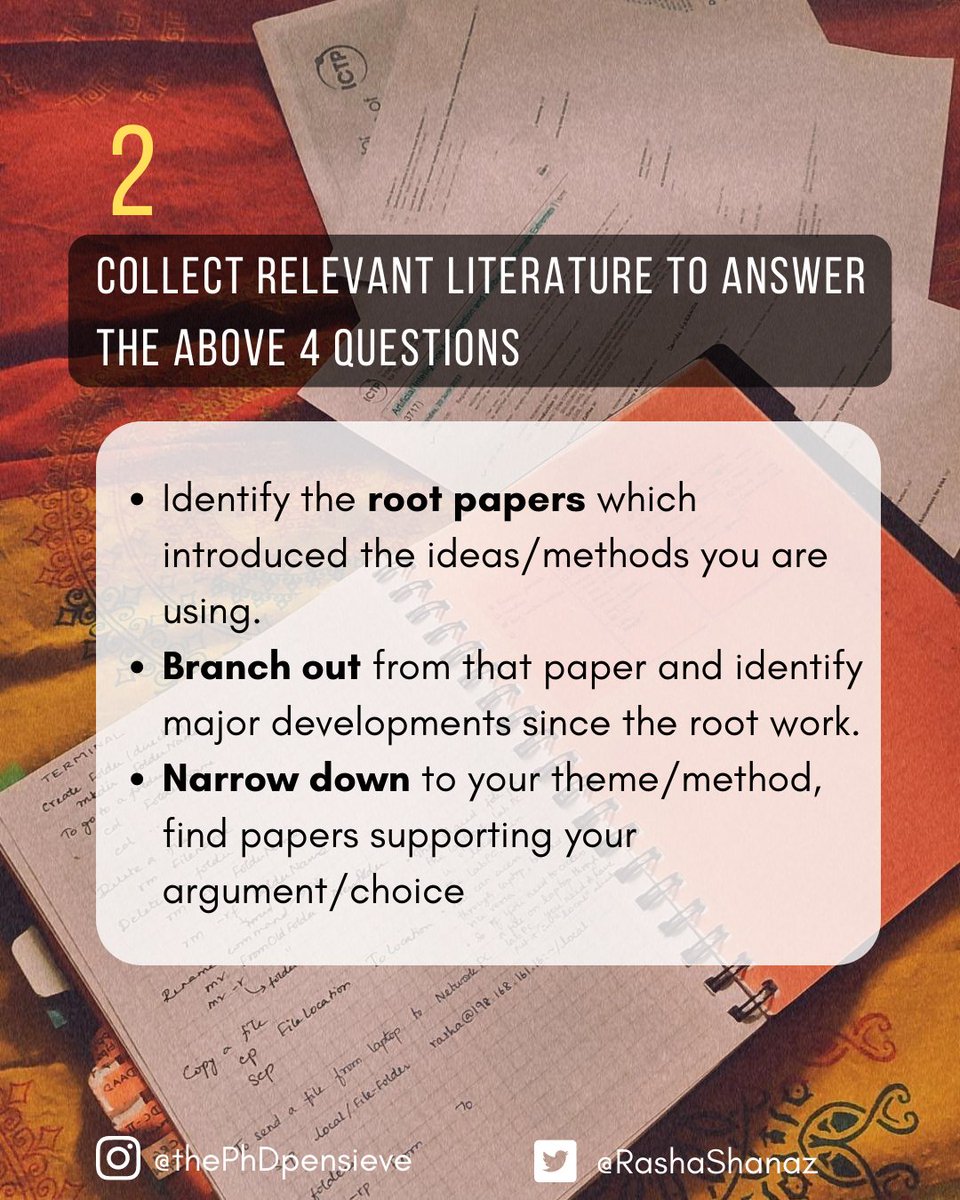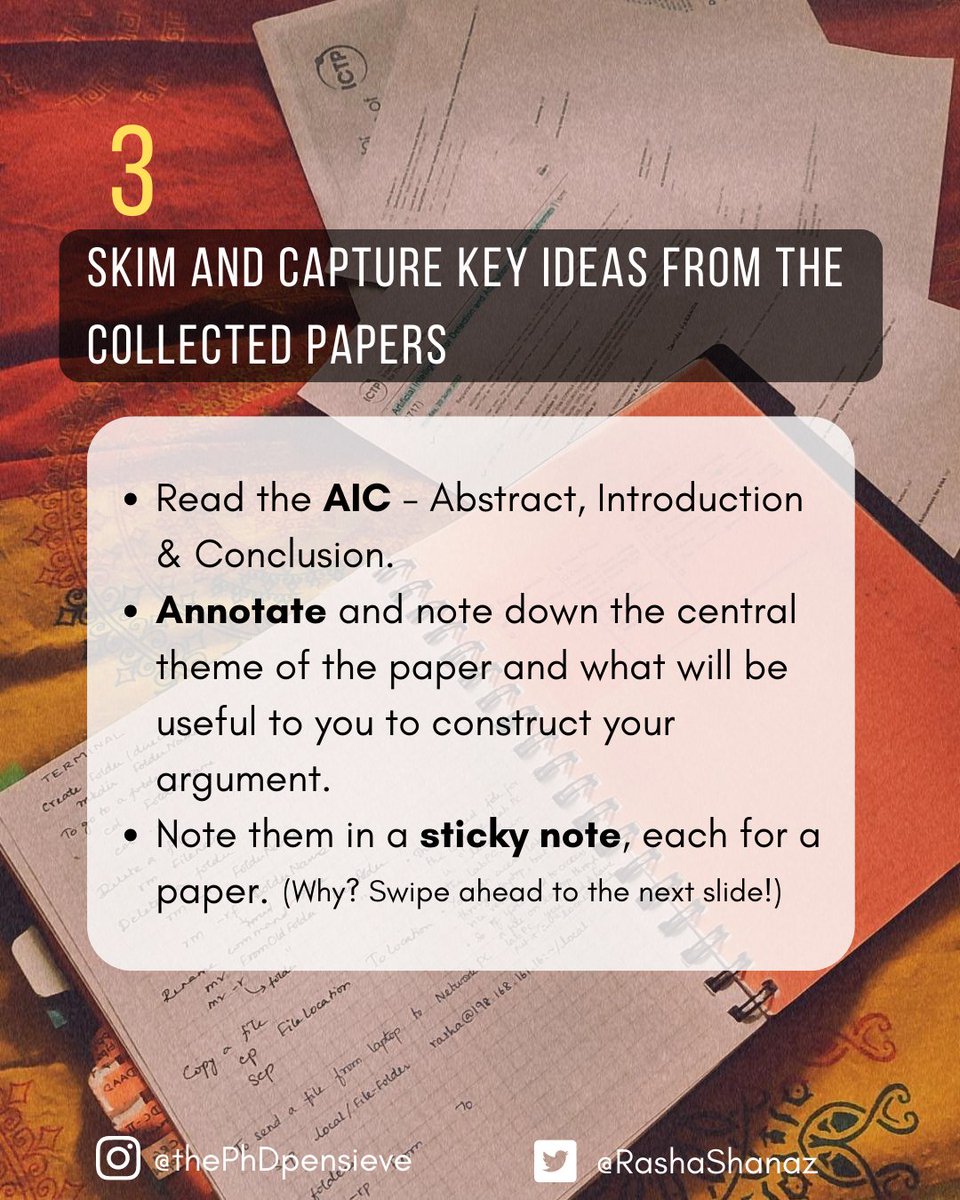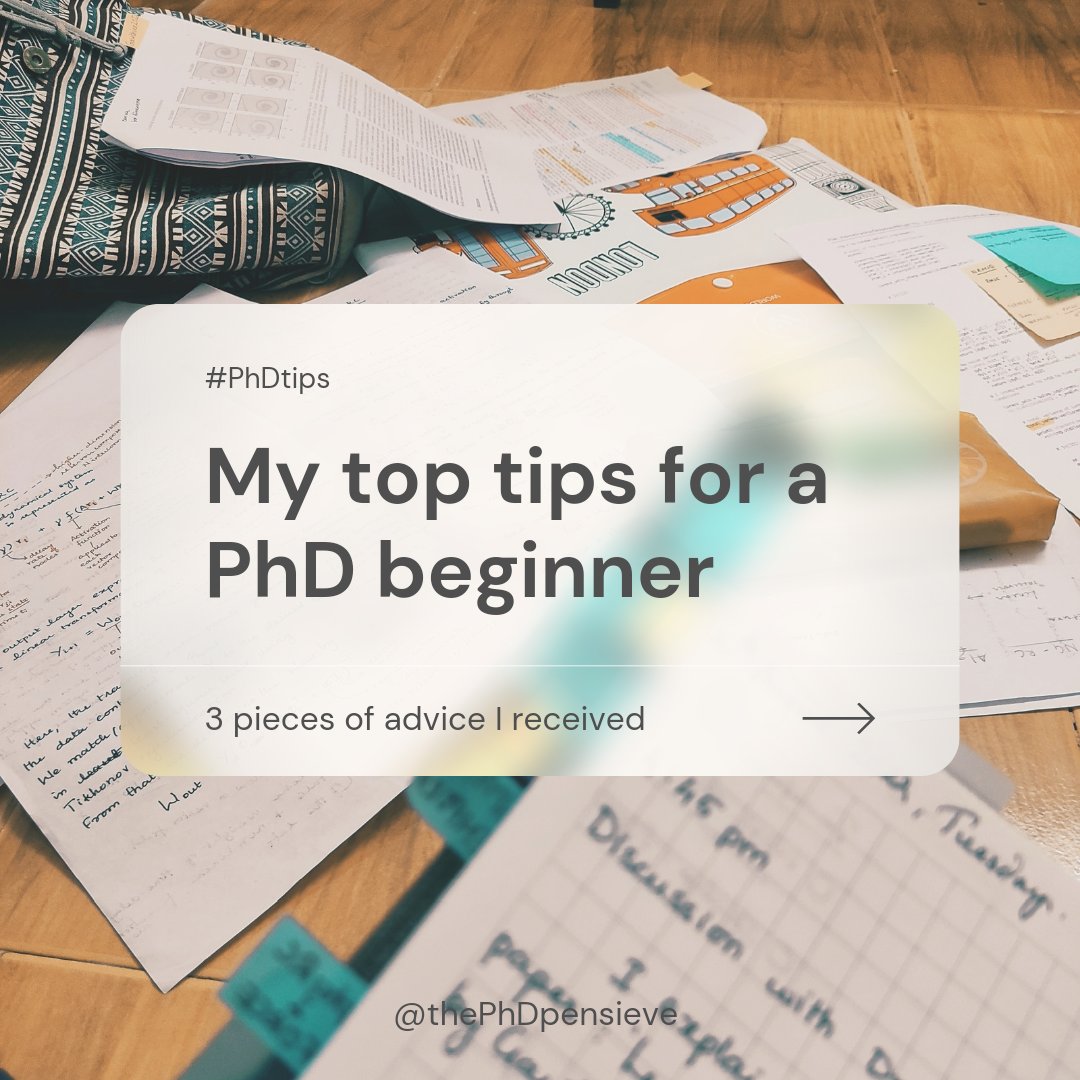Do you feel confused over how to write a #LiteratureReview, clueless about why we write this or where to start? A lot of us started there!
Here's my idea to
Write a #LitRev in 5 definitive steps🧵
#LiteratureReview #AcWri #PhDtips #AcademicTwitter #ScienceTwitter #PhDlife
Here's my idea to
Write a #LitRev in 5 definitive steps🧵
#LiteratureReview #AcWri #PhDtips #AcademicTwitter #ScienceTwitter #PhDlife

1️⃣ Start by identifying the 𝗴𝗼𝗮𝗹. These questions will guide your literature collection and writing of the review:
— Why this problem?
— What has been done before and where's the research gap?
— What other methods exist, and why could the chosen method fill the gap?
— Why this problem?
— What has been done before and where's the research gap?
— What other methods exist, and why could the chosen method fill the gap?

2️⃣𝗖𝗼𝗹𝗹𝗲𝗰𝘁 relevant literature to answer the above questions by starting from a root paper, branch out and then narrowing down to your theme.
I'd suggest @rsrchrabbit for this step. (I've already made a reel about this and you can find it in my recent story/highlights.)
I'd suggest @rsrchrabbit for this step. (I've already made a reel about this and you can find it in my recent story/highlights.)

3️⃣ Skim and capture key ideas by reading the 𝗔𝗜𝗖 - Abstract, Introduction & Conclusion - from the collected papers. 

4️⃣ Reorganize your thoughts and create a narrative flow with my '𝗦𝘁𝗶𝗰𝗸𝘆 𝗡𝗼𝘁𝗲𝘀 𝗠𝗲𝘁𝗵𝗼𝗱'. (Also in the already mentioned reel! Do you want to know more about this tool? Drop a 🔎 in the comments, ) 

📝Writing a literature review feels daunting for the first time. But it is a skill that is developed with practice and time!
So keep reading & writing!
If you found this helpful, please retweet🔁 the first tweet and help this reach a wider audience!❤️
So keep reading & writing!
If you found this helpful, please retweet🔁 the first tweet and help this reach a wider audience!❤️
✨📖This is a part of my #QApensieveSeries on Instagram, where I create posts to answer questions from my followers💙
If you want me to post on a particular topic, comment your question below!⬇️ And consider following me here and also on IG (instagram.com/thephdpensieve/)!
If you want me to post on a particular topic, comment your question below!⬇️ And consider following me here and also on IG (instagram.com/thephdpensieve/)!
• • •
Missing some Tweet in this thread? You can try to
force a refresh















